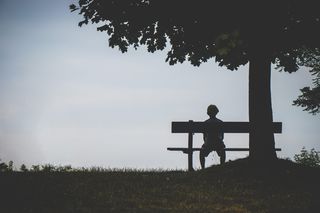Coronavirus Disease 2019
Coronavirus Killed the Semester—Now What?
Part 1: How college students can make it through.
Posted March 20, 2020
This post is Part 1 of 2.
Unless you’ve been on your boat in the South Pacific with no internet (or on a silent meditation retreat like Jared Leto), you already know that some nasty virus (coronavirus, which causes COVID-19) leapt from an animal to a human sometime last year and now we have a pandemic.

The earliest known case is that of a 55-year-old from Hubei province in China who may have contracted COVID-19 way back in November of 2019 (South Morning China Post) which is more than a month earlier than the cases in Wuhan, China at the end of December 2019. Regardless of when it first hit, it’s here now and our local, state, and federal governments, after weeks of downplaying it, have finally started efforts to test, contain, and mitigate it.
Vulnerable populations like the immune-compromised and the elderly have been the focus of protection efforts since COVID-19 can quickly and significantly compromise their health and lead to death. But my focus is college students and how, though physically in their prime, may be most vulnerable from a psychological perspective.
Many of the steps and recommendations for containment of COVID-19 are directly impacting college students, almost like kryptonite. Recommending social isolation, washing your hands, and taking responsibility for online classes? That’s a heavy lift even for the super-students out there. What about those planning to graduate in May or June who have jobs lined-up? This can be an especially confusing and stressful time and since we haven’t experienced anything like this in over 100 years (looking at you Spanish Flu), we are a tad ill-prepared for what it will take to support students. Though hastily thrown together (I’ll have plenty of time over the next few weeks to edit this) I think this is a pretty comprehensive list of what college students and their families should be considering.
Fundamentals
Let’s start with some basics that every responsible human should be doing and aware of directly (with some needed personality added in) from the Center for Disease Control and the World Health Organization. First, take this disease seriously. No! It’s not like a cold or flu.
Next, wash your hands. If you’ve been one of the lucky ones and have hand sanitizer, keep it stashed in a pocket and use it after every outing and interaction.
Next, don’t socialize. No parties, no travel, no restaurants. Just a bad idea which will likely help spread the virus rather than contain it. It's unlikely college students will have significant health problems from catching it. The real problem is when they spread it to others. Researchers still are not sure how it spreads but do know direct contact is one way.
Finally, please understand that most researchers agree we are very early on in this pandemic with federal health officials speculating it could peak in May 2020 though the effects could impact healthcare, education, and the economy for years. In the last 24 hours, experts are now stating this pandemic could last for over 18 months (that's through into early 2021).

Education
Public schools are shut down. If they have not shut down in your area, they likely will. Same with colleges and universities. If they have not moved to virtual or online classes, they will. Administrators are still figuring out how this will impact graduating students, students that needed an internship, and those students who might lose out on credits. Basically, they were forced into a "Ready, Fire, Aim!" situation.
Recommendation: Email your son’s or daughter’s academic advisor a list of specific questions related to the points I just made. This will provide you with specific information not necessarily listed on the school’s site and at least give you some peace of mind you’re doing everything in your power to control the situation.
Focus
Sometimes, when a relationship ends or we move from college to a new city, we can easily feel disoriented and lose our rhythm. How about a pandemic that has a seemingly slow build-up and mostly resides on cable news at this point? Empty grocery stores and closed bars and restaurants. At first, it may have the feel of a preemptive snow day where the snow never came but everything shut down. But then a new reality begins after days and days of the world being more and more… different. It’s at this point that the first casualty is evident. We lose focus. Our patterns and schedules forgotten, replaced with impulse since we are suddenly... time-rich and oversight-poor.
Recommendation: Specifically for college students, get a daily schedule mapped out for at least the next week (yes, starting today). It may not be fair but your son or daughter is getting a crash course in personal responsibility and adaptability. The students (and adults) that adapt to the next few months with integrity, self-discipline, and planning will be the big winners as society settles into a new paradigm of vulnerability and economic upheaval.

Social Isolation
We are all being encouraged to isolate from friends, family, and the general community. It’s a vital part of containing the spread of the virus. For college students, this is a big request since they are in the prime of wanting and needing that social contact.
Social isolation can also feel strange since you can walk in the park and do regular activities and nothing about the physical environment seems any different. Like my example above of the classic snow day where everything is shut down and we feel cabin-feverish, which at least makes sense to feel so cut off since there is, well, too much snow.
Recommendation: If ever there was an argument to be made for the value of social media and, specifically, Skype and FaceTime, this is it. I’m encouraging all my clients to intentionally reach out to friends (and family) not only on a group text but also set up a time to FaceTime for a few minutes. While nothing can adequately replace in-person meetings, FaceTime/Skype at least allows us some visual contact. It also forces us to at least look like we’re taking care of ourselves.
Another suggestion is to get outside as often as possible unless you are in a crowded (unlikely at this point) city. Research shows that even just seeing others or our outside world can help when we feel isolated.
I expect this to be a big problem and here’s why—we are telling college students a) to stay away from friends, b) to not go to school, and c) we have no idea when any of this will go back to normal.
It is almost a specific recipe for creating depression. There is only so much Netflix, Snapchat, and online schoolwork a kid can do before they start rotting from the inside out. The lack of physical contact is going to be another big problem. Kids hook up at parties. Frat parties and events are as physical as they are social. All of this changed in a matter of days. Gone. Your college student is at real risk of losing motivation, feeling down and hopeless. There really is no way of knowing what the next few months will look like.
Recommendation: Now... like right now, if your son or daughter was working with a therapist, email or call them and make contact. Find out if they are still working with clients and if they are willing to do phone/Skype/FaceTime. If so, get something scheduled for a week out so that if signs of depression creep in (or creep back in for those with a history of it) you will not need to compete for the limited spots all of us professionals are going to have in the coming months. Next, get your kiddo on a schedule, including a regular sleep schedule, working out, and attending to school work if their virtual/online classes are not meeting at a specific time. Finally, encourage them to keep in contact with friends and family, specifically with FaceTime or Skype.
This is also another issue that’s likely to rise in students and can be really scary for parents who haven’t dealt with it before. When we feel confined and isolated, our brain has a difficult time with chronic containment. The fastest way to make a sane person insane is to put them in total isolation—think of Tom Hanks on the island talking to a volleyball (Wilson!). Our brain craves social interaction and all the little seemingly invisible problems and struggles a typical day out in the world provides. What happens when we are all telecommuting? Our brain starts freaking out and the perceived threat in the environment is no longer that frat brothers are making fun of us or that group presentation next Monday. The new threat, which is bizarre and disorienting, is isolation.
Recommendation: All the suggestions for depression apply here but with a few others. I recommend that all students engage in some type of practice that gets them out of their minds for at least 30 minutes each day—yoga, meditation, reading, golf, etc. Something where our fight or flight response is dialed-down. There are a bazillion apps and YouTube channels with free options. Use them. Use them now and get a practice going before isolation becomes a bigger problem.
Next post, I'll cover more topics for college students and their parents to consider as we prepare for a semester unlike any other.




